Don't wanna be here? Send us removal request.
Text
The Role of Russian Intervention in Syria:
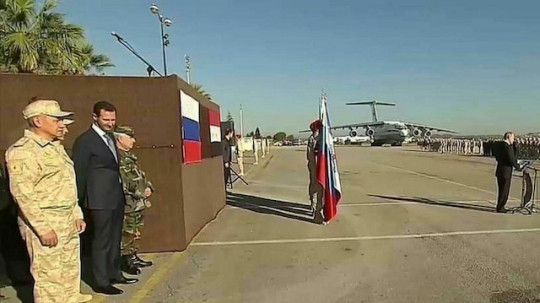
Introduction:
Given that the Syrian people are victims of Russian intervention, it is essential to consider this significant aspect for Syrians and their friends around the world, both people and governments. To understand any military or political developments, we must grasp the context. There are different parties involved, each with its own strategic calculations. The scenes become tragic, as in northwest Syria, when these strategic calculations conflict. Identifying the parties in Syria, we see Russia, Iran, Israel, Turkey, and NATO as key players, each with its own strategic interests. When these interests clash, tragedies occur, turning battles into bloodbaths that can last for more than a decade, or perhaps decades.
Strategic Calculations of the Conflict Parties in Syria:
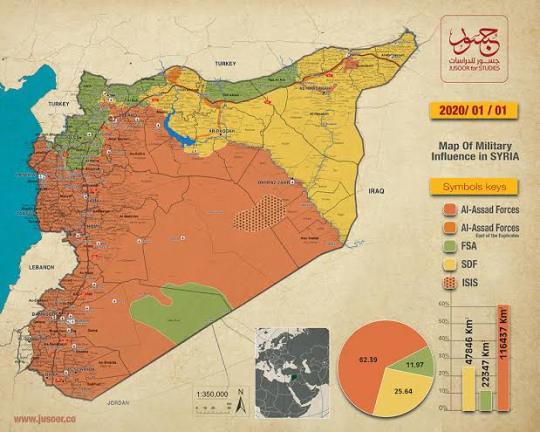
To see the full picture, we can outline the strategic calculations of local and international parties involved in the conflict. NATO wants to expand in Syria, while Russia aims to stop this expansion. Iran seeks demographic changes in Syria, and Israel wants to ensure Syria does not pose a threat to its security. The Syrian opposition aims to overthrow the regime and establish a new Syria, while Turkey does not want a Kurdish state in northern Syria. The Kurds seek to establish their own state, and the Syrian regime wants to eliminate the opposition and the Kurds to stay in power. The conflicting strategic calculations of these parties result in clashes, causing millions of innocent people to suffer, which sets the context for the Syrian conflict.
What are the Goals of Russian Military Intervention in Syria?
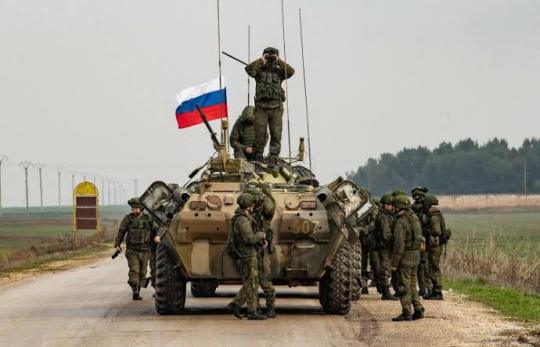
There is no doubt that when Russia intervened in Syria in 2015, the Russian leadership had certain goals in mind. These can be summarized into seven main objectives:
1. Countering Western influence, especially the American role in Syria.
2. Supporting the Syrian regime, which was the main justification for Russia's intervention. The Syrian regime had handed over all control, making Syria's fate dependent on foreign interventions, whether Russian, Iranian, or even Israeli, as we will see in the following details.
3. Eliminating the Syrian armed opposition, which was active during its golden period from 2011 to 2015.
4. Using the Syrian crisis as a bargaining chip with the West and the United States, especially regarding economic sanctions and Ukraine.
5. Restoring Russia's international standing by asserting its role as a key partner in addressing international and regional crises.
6. Increasing Russia's geopolitical control in the Fertile Crescent region, which had fallen out of Russian control, with Americans and Westerners generally viewing it as an area of influence, necessitating Russian military intervention to regain control.
7. Strengthening Russian nationalism, a belief upheld by Putin's administration.
What is the International Stance on Russian Military Intervention in Syria?
Western intelligence agencies, whether MI6 or CIA, were surprised by the extent of Russian intervention. John Sawers, in a recent recorded lecture on YouTube, said that the West tried from 2011 to 2015 to build the Free Syrian Army, not realizing that Putin was monitoring their activities in Syria. Putin's military intervention caught them off guard, undermining the Western project entirely. Sawers admitted that since the Russian intervention in Syria in 2015, the Western project in Syria failed. The West now understands the Russian role in Syria, as it targets all armed Syrian opposition to the Syrian regime. Under the guise of fighting terrorism, Russia entered Syria but primarily targeted Syrian opposition forces and the Free Syrian Army. John McCain, a former congressman responsible for overseeing the building of the Free Syrian Army, stated that while they were building, the Russians were bombing, indicating that Russian aircraft did not target ISIS but rather the Free Syrian Army established by the United States and the West.
Russian Achievements in Syria:
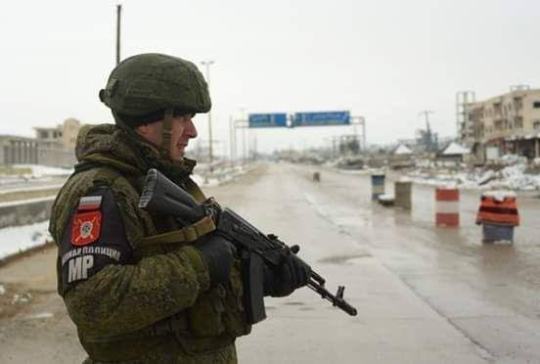
Since its intervention in Syria, Russia has achieved significant and notable accomplishments. Russia prevented the fall of the Syrian regime, restoring its confidence after it was on the verge of collapse. In March 2016, the regime recaptured Palmyra, and in December of the same year, Aleppo. In 2017, they broke the siege of Deir ez-Zor. In January 2017, Valery Gerasimov, the chief of the Russian General Staff, announced that the Russian Air Force had conducted 71,000 sorties, targeting what he referred to as terrorists, meaning Syrian opposition factions. In December 2017, the Russian defense minister stated that 48,000 Russian fighters had gained significant military experience in Syria, with new Russian weapons being tested in Syrian areas. Overall, Russia's achievements in Syria cannot be underestimated.
Syrian Opposition:
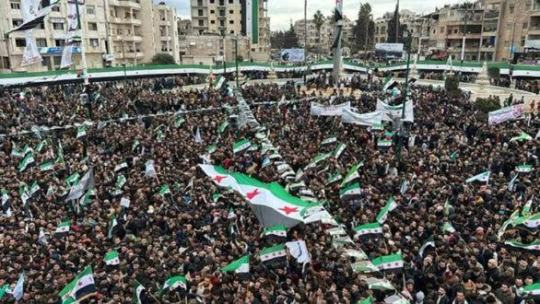
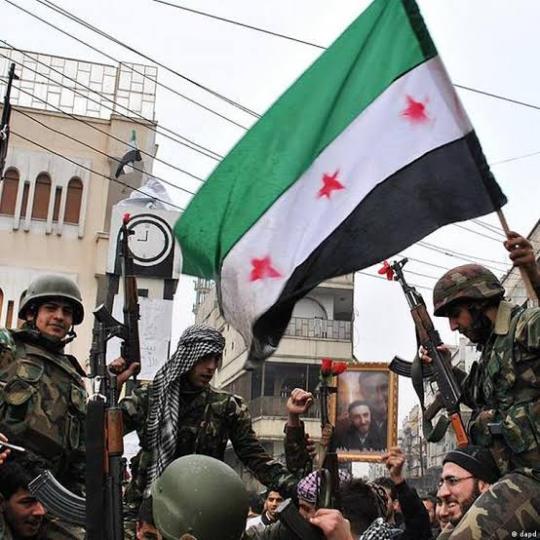
Firstly, the Syrian opposition must focus on achievable goals to overthrow the Assad regime and avoid unequal confrontations. Currently, the opposition is cornered in northwest Syria, specifically in Idlib, making them and the civilians easy targets for Russian and Iranian forces, as the Syrian regime has become a tool in the hands of Russia and Iran. Secondly, unifying the Syrian opposition's rhetoric as much as possible is crucial. The opposition is often fragmented with scattered messages, each party having its own project and vision. This fragmentation demonstrates to the world that the Syrian opposition is disorganized and unable to bring about change in Syria. Thirdly, it is essential to engage with external media and present the Syrian cause internationally. Effective media representation is crucial, as evidenced by the global protests triggered by the image of George Floyd being choked by an American policeman. Developing a network of political relations with parliaments, newspapers, radio stations, and global channels is vital to highlight and export the Syrian cause.
Fourthly, the large demographic presence in northwest Syria poses a significant threat to the Syrian opposition and people. The opposition must spread across the entire Syrian geography rather than being concentrated in northwest Syria, to avoid a massive crackdown being prepared by Iran and Russia.
This concludes the coverage of the Russian role in Syria within its political, temporal, and various dimensions.
Written by: Moatasem Al-Bakour
1 note
·
View note